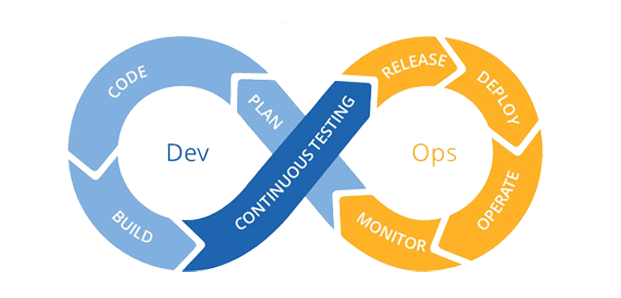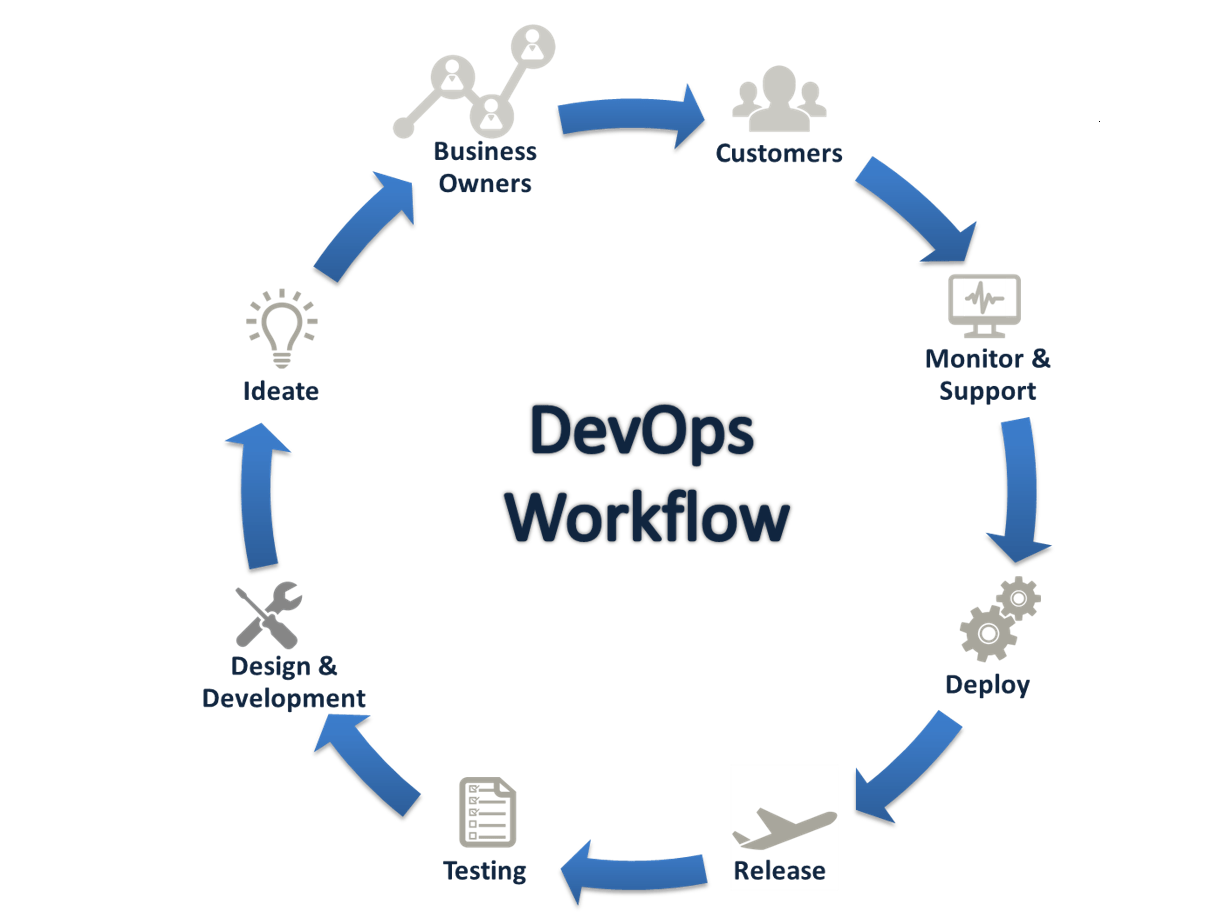DevOps Beginners Tutorial: Introduction To DevOps
0 CommentsWe will learn about DevOps in the following sequence:
- What is DevOps?
- Why is DevOps is Needed?
- DevOps Lifecycle
- DevOps WorkFlow
- DevOps Training Curriculum
- DevOps Training Certification
- What is the future of DevOps?
What is DevOps?
DevOps (a clipped compound of “development” and “operations”) is a set of software development practices[failed verification] that combines software development (Dev) with information technology operations (Ops) to shorten the systems development life cycle while delivering features, fixes, and updates frequently in close alignment with business objectives.

DevOps (development and operations) is an enterprise software development phrase used to mean a type of agile relationship between development and IT operations. The goal of DevOps is to change and improve the relationship by advocating better communication and collaboration between these two business units.
Why is DevOps is Needed?
- Before DevOps , the development and operation team worked in complete isolation.
- Testing and Deployment were isolated activities done after design-build. Hence they consumed more time than actual build cycles.
- Without using DevOps, team members are spending a large amount of their time in testing, deploying, and designing instead of building the project
- Manual code deployment leads to human errors in production
- Coding & operation teams have their separate timelines and are not in synch causing further delays.
There is a demand to increase the rate of software delivery by business stakeholders. As per Forrester Consulting Study, Only 17% of teams can use delivery software fast enough. This proves the pain point.
DevOps Lifecycle:

DevOps is deep integration between development and operations. Understanding DevOps is not possible without knowing DevOps lifecycle
Development
In this DevOps stage the development of software takes place constantly. In this phase, the entire development process is separated into small development cycles. This benefits DevOps team to speed up software development and delivery process.
Testing
QA team use tools like Selenium to identify and fix bugs in the new piece of code
Integration
In this stage, new functionality is integrated with the prevailing code, and testing takes place. Continuous development is only possible due to continuous integration and testing
Deployment
In this phase, the deployment process takes place continuously. It is performed in such a manner that any changes made any time in the code, should not affect the functioning of high traffic website.
DevOps WorkFlow :

Workflows provide a visual overview of the sequence in which input is provided. It also tells about actions are performed, and output is generated for an operations process.
Workflow allows the ability to separate and arrange jobs which are top-requested by the users. It also gives the ability to mirror their ideal process in the configuration jobs
DevOps Training Curriculum
- Introduction to Devops
- Introduction to virtualization
- VAGRANT
- GIT: Version Control
- Docker – Containers
- Chef for configuration management
- SaltStack for configuration management
- Puppet for configuration management
- Ansible
- Nagios: Monitoring
- Jenkins – Continuous Integration
- Docker Container Clustering using Docker Swarm
- Docker Container Clustering using Kubernetes
- Advanced DevOps (CI/CD Pipeline Automation)
- DevOps on Cloud
DevOps Training Certification
DevOps training certification helps anyone who aspires to make a career as a DevOps Engineer. Certifications are available from Amazon web services, Red Hat, Microsoft Academy, DevOps Institute
- AWS Certified DevOps Engineer
- Red Hat Certification
- Devops Institute
What is the future of DevOps?
They are lots of Change likely to happens in the DevOps world some most prominent are:
- Organizations are shifting in their needs to weeks and months instead of years.
- We will see soon that DevOps engineers have more access and control of the end user than any other person in the enterprise
- DevOps is becoming a valued skill for IT people. For example, a survey conducted by Linux hiring found that 25% of respondent’s job seeker is DevOps expertise.
- DevOps and continuous delivery are here to stay. Therefore companies need to change as they have no choice but to evolve. However, the mainstreaming the notion of DevOps will take 5 to 10 years
DevOps Master Certification Training
Mildaintrainings DevOps Online Training will help you gain the required skill set for getting a DevOps Engineer job. It will make you proficient in DevOps skills like Continuous Integration, Delivery and Deployment, Infrastructure as a Code and more using DevOps tools like Git, SVN, Docker, Docker Swarm, Kubernetes, Puppet, Ansible, Selenium, Maven, Nagios, etc.
Mildaintrainings DevOps Training is designed to help you become a DevOps practitioner and apply the latest in DevOps methodology to automate your software development lifecycle right out of the class. You will master configuration management; continuous integration deployment, delivery, and monitoring using DevOps tools Such as Git, Docker, Jenkins, Puppet and Nagios in a practical, hands- on and interactive approach. The DevOps training course focuses heavily on the use of Docker containers, a technology that is revolutionizing the way apps are deployed in the cloud today and is a critical skill set to master in the cloud age.
DevOps Master Certification Training – Skills
After completing the DevOps training, you will achieve hands-on expertise in various aspects of the DevOps delivery model. The practical learning outcomes of this Devops training course are:
- An understanding of DevOps and the modern DevOps tool sets
- The ability to automate all aspects of a modern code delivery and deployment pipeline using
- Source code management tools
- Build tools
- Test automation tools
- Containerization through Docker
- Configuration management tools


